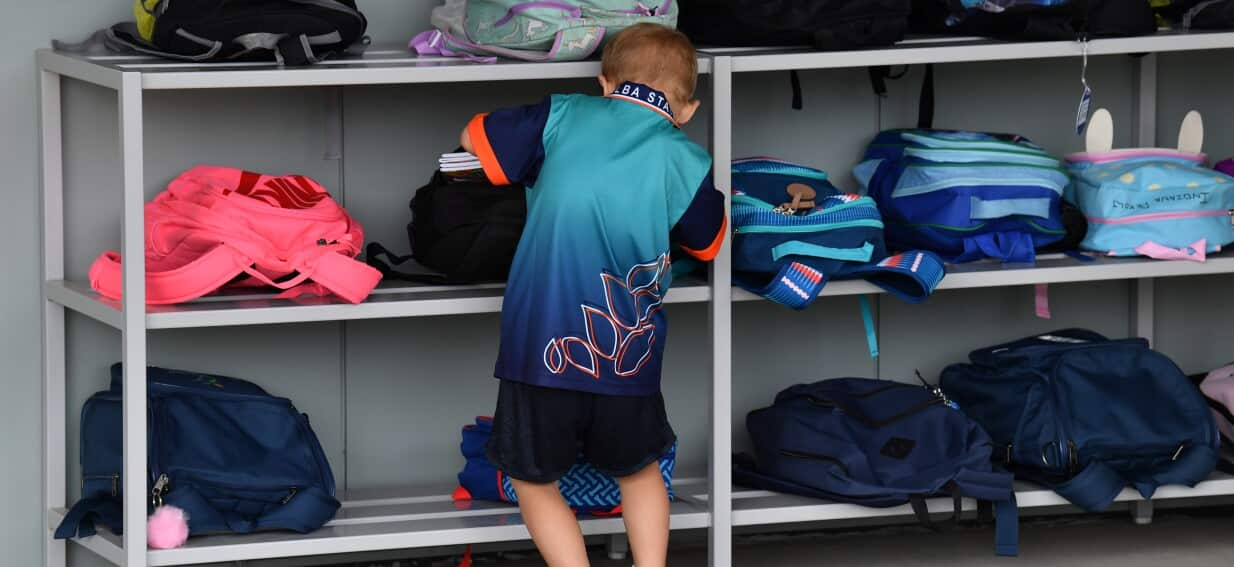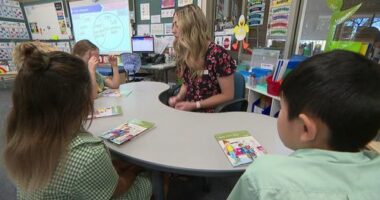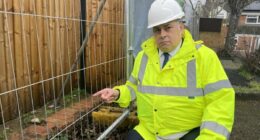Share this @internewscast.com

A plan to divert children with autism and developmental delays from the NDIS is crucial to ensure the scheme remains sustainable, the disability minister says.
Disability Minister Mark Butler used a speech at the National Press Club on Wednesday to say the NDIS was not the right fit for the growing number of children on the autism spectrum or with developmental delays.
A separate program called Thriving Kids will be set up to focus on those children previously covered by the NDIS.
It will begin rolling out from July 2026 and be fully implemented by July 2027.
Bulk-billed check-ups
Children with autism on the NDIS would not be steered from the scheme until supports were fully rolled out, the minister said.
“I know this will be hard for some parents to hear and I don’t say it lightly,” Butler said in the speech.
“We need as a matter of some urgency to create a better system that will enable our children to thrive.
“Diverting this group of kids over time from the NDIS is an important element of making the scheme sustainable and returning it to its original intent.”
Medicare items for occupational therapy, speech pathology and psychosocial therapy would be considered for the program, including a bulk-billed check-up for three-year-olds, Butler said.
The government would start by making a $2 billion contribution, matched by states and territories.
‘A once-in-a-generation change’
Early intervention strategies were key for ensuring children received the right support, Autism Awareness chief executive Nicole Rogerson said.
“(Thriving Kids) potentially has the opportunity to be a once-in-a-generation change in how we look at developmental pediatrics,” she said.
She said what Butler was doing was “pretty rare for a politician” because he was “owning what the problem is”.
Ensuring the program was in place before children were moved from the scheme was reassuring, People with Disability acting chief executive Megan Spindler-Smith said.
The minister said while one-in-50 people had a significant disability which would be covered by the NDIS, one-in-five young children were on the autism spectrum or had a developmental delay.
Parents had little choice but to put their children with autism on a scheme designed for permanent disability, Butler said.
“Families seeking extra support in mainstream services are unable to find it, as such supports largely no longer exist, and in this regard, all governments have let them down,” he stated.
Butler said the changes would help to bring down the cost of the NDIS, with taxpayers set to fork out more than $52 billion for the scheme in 2025/26.
Laws passed in 2024 put in place a cap on spending growth of eight per cent per year.
But the minister said the existing level of growth was unsustainable and a cap of between five and six per cent would be more effective.
“After we achieve our current target, a further wave of reform will be needed to get growth down to a more sustainable position,” he said.
“There’s no significant change in disability prevalence in the community, and the scheme is now fully rolled out. So growth should really reflect unit price inflation plus growth in Australia’s population.”
Autism peak body Aspect said families needed the right level of support.
“Given the number of autistic children we support through our schools and therapy programs, families must have confidence there will be continuity of supports, real choice and control, and no gaps during the transition,” chief executive Jacqui Borland said.









